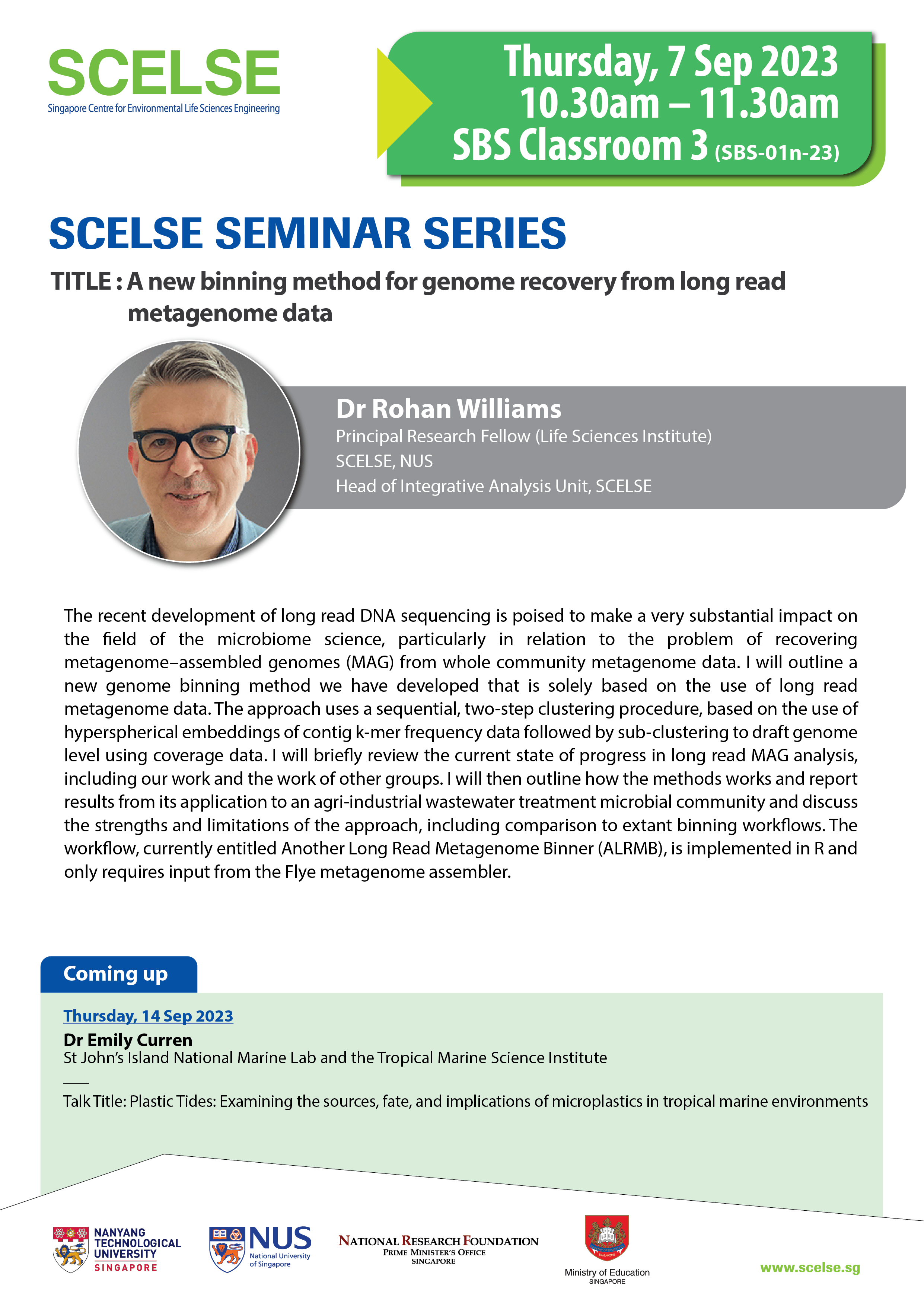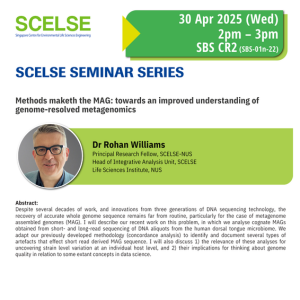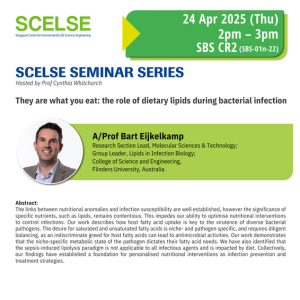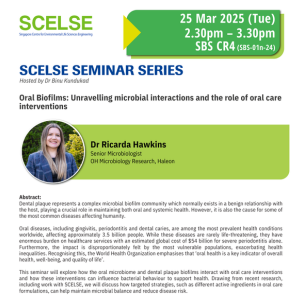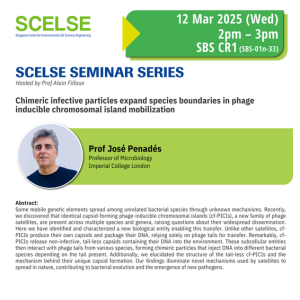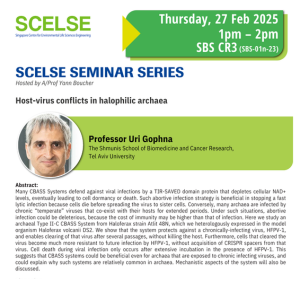SCELSE Seminar Series: A new binning method for genome recovery from long read metagenome data
Date: Thursday, 7 Sep 2023
Time: 10.30am – 11.30am
Venue: NTU School of Biological Sciences Classroom 3 (SBS-01N-23)
Abstract:
The recent development of long read DNA sequencing is poised to make a very substantial impact on the field of the microbiome science, particularly in relation to the problem of recovering metagenome–assembled genomes (MAG) from whole community metagenome data. I will outline a new genome binning method we have developed that is solely based on the use of long read metagenome data. The approach uses a sequential, two-step clustering procedure, based on the use of hyperspherical embeddings of contig k-mer frequency data followed by sub-clustering to draft genome level using coverage data. I will briefly review the current state of progress in long read MAG analysis, including our work and the work of other groups. I will then outline how the methods works and report results from its application to an agri-industrial wastewater treatment microbial community and discuss the strengths and limitations of the approach, including comparison to extant binning workflows. The workflow, currently entitled Another Long Read Metagenome Binner (ALRMB), is implemented in R and only requires input from the Flye metagenome assembler.
Speaker:
DR ROHAN WILLIAMS
Principal Research Fellow (Life Sciences Institute) SCELSE, NUS
Head of Integrative Analysis Unit, SCELSE
